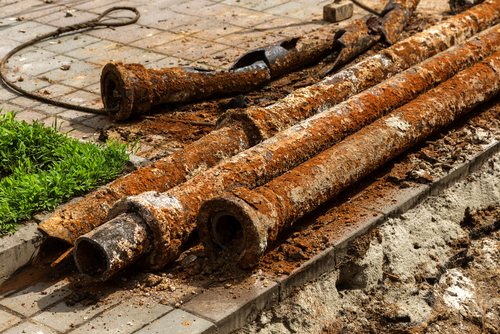Alycen A. Moss and Elliot Kerzner | Property Insurance Law Observer
A Florida court recently held that rust and corrosion of water pipes is an “act of nature,” and, thus, was excluded from coverage under a homeowner’s insurance policy. In Dodge v. People’s Trust Insurance Company, 2021 WL 2217299 (4th DCA Jun. 2, 2021), Florida’s Fourth District Court of Appeals defined “act of nature” as a naturally occurring force that does not require an uncontrollable or unpreventable event.
The facts in Dodge were undisputed. Water overflow from the insureds’ plumbing system caused damage to their home, and the parties agreed that the loss resulted from the deterioration of cast iron pipes under the home because of “rust or other corrosion.” The policy at issue contained a water damage exclusion for “. . . overflow of water . . . caused by or resulting from human or animal forces or any act of nature.”
The dispute involved the definition of “act of nature.” The insureds argued that the phrase “act of nature” was only triggered if some singular act or external force occurred. They also argued that the phrase “act of nature” was synonymous with the phrase “act of God,” which Black’s Law Dictionary defined as “an overwhelming, unpreventable event caused exclusively by forces of nature . . . .” Because the corrosion to their plumbing system was not due to an “exceptional, unpreventable event,” the insureds argued that the cause of their loss did not trigger application of the water damage exclusion.

The court disagreed and held that “act of nature” simply means “something that naturally occurs,” and rust and corrosion fit within this broad definition. The court defined “act” as “the doing of a thing,” and “nature” as “the inherent character or basic constitution of a person or thing.” The court further defined “rust” as the “reddish brittle coating formed on iron especially when chemically attacked by moist air,” and “corrosion” as “the action, process, or effect of corroding,” which is “to wear away gradually by chemical action.” The court observed that rust is a form of corrosion because it is the product of a chemical reaction between iron and moist air, and corrosion is an “act of nature” because it is “the doing by chemical action of the inherent character of the thing – the wearing away of iron by moist air.”
Based on the above definitions, the court concluded that the policy term “act of nature” did not require an uncontrollable or unpreventable event, and excluded damage caused by natural forces. Because rust and corrosion is a naturally occurring force, it qualified as an “act of nature,” and the resulting loss was thus precluded from coverage by the water damage exclusion. Accordingly, the insureds’ total coverage was subject to a $10,000 sublimit water damage coverage endorsement.
Under the expansive definition established in Dodge, the term “act of nature” can now be applied to controllable, preventable, and gradual events under Florida law. While the Dodge holding itself was limited to rust and corrosion, its reasoning could allow insurers to apply the term “act of nature” to any naturally occurring event that affects something’s inherent character or basic constitution.
